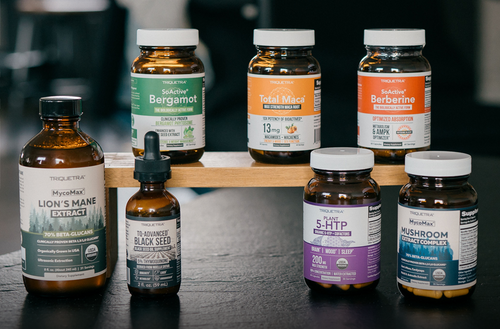It's no secret that stress can take a toll on your mental health. But what you may not know is that stress can also have a profound impact on your gut bacteria-the bacteria and other microorganisms that live in and on your body. When you're stressed, the bacteria in your gut can become imbalanced, leading to all sorts of problems like diarrhea, constipation and even obesity. Learning how to manage your stress levels is essential for maintaining a healthy microbiome!
What is a microbiome and why is it important?

A microbiome is a collection of microorganisms including bacteria, viruses, and fungi that live in or on the body. The microbiome is important because it helps keep the body healthy by performing essential functions like digestion, protecting against infection, and producing vitamins.
The gut microbiome is especially important, as it helps break down food and absorb nutrients. When the gut microbiome is imbalanced, it can lead to problems like diarrhea, constipation, and obesity. One of the main causes of gut microbiome imbalance is stress.
How does stress affect the microbiome?
Stress can have a profound impact on the gut microbiome, leading to imbalances that can cause problems like diarrhea, constipation, and obesity.
One of the main ways that stress affects the gut microbiome is by causing the release of cortisol, a hormone that can disrupt the balance of bacteria in the gut. When cortisol is released, it can kill off beneficial bacteria and promote the growth of harmful bacteria.
In addition, stress can also lead to changes in diet and lifestyle that can upset the balance of gut bacteria. For example, people who are stressed may be more likely to eat unhealthy foods or skip meals.
Managing stress is essential for maintaining a healthy gut microbiome. Ways to manage stress include yoga, meditation, exercise or taking adaptogens, like ashwagandha or rhodiola.

How can you maintain a healthy microbiome?
There are several things you can do to maintain a healthy gut microbiome and prevent problems like diarrhea, constipation, and obesity.
Firstly, managing stress is essential. Ways to manage stress include yoga, meditation, exercise or taking adaptogens, like ashwagandha or rhodiola.
In addition, diet and lifestyle can play a role in maintaining a healthy microbiome. Eating healthy foods and avoiding processed foods is key. It's also important to eat regularly and avoid skipping meals.
Finally, probiotics and eating fermented foods can help keep the gut microbiome balanced. Probiotics are supplements or foods that contain beneficial bacteria that help keep the gut healthy. Taking probiotics can help restore the balance of gut bacteria and prevent problems like diarrhea, constipation, and obesity.
Conclusion
The microbiome is a hot topic in the world of health and science, and for good reason. It seems that every day researchers are discovering new ways that the gut microbiota can impact human health. From mental health to weight management, stress resistance to disease prevention, it’s clear that having a healthy microbiome is essential for overall well being. Allow us to help you adapt to the unavoidable stress of life with our industry leading adaptogens and optimize your gut health with our 3-in-1 fermented probiotic, Flora Biome!











